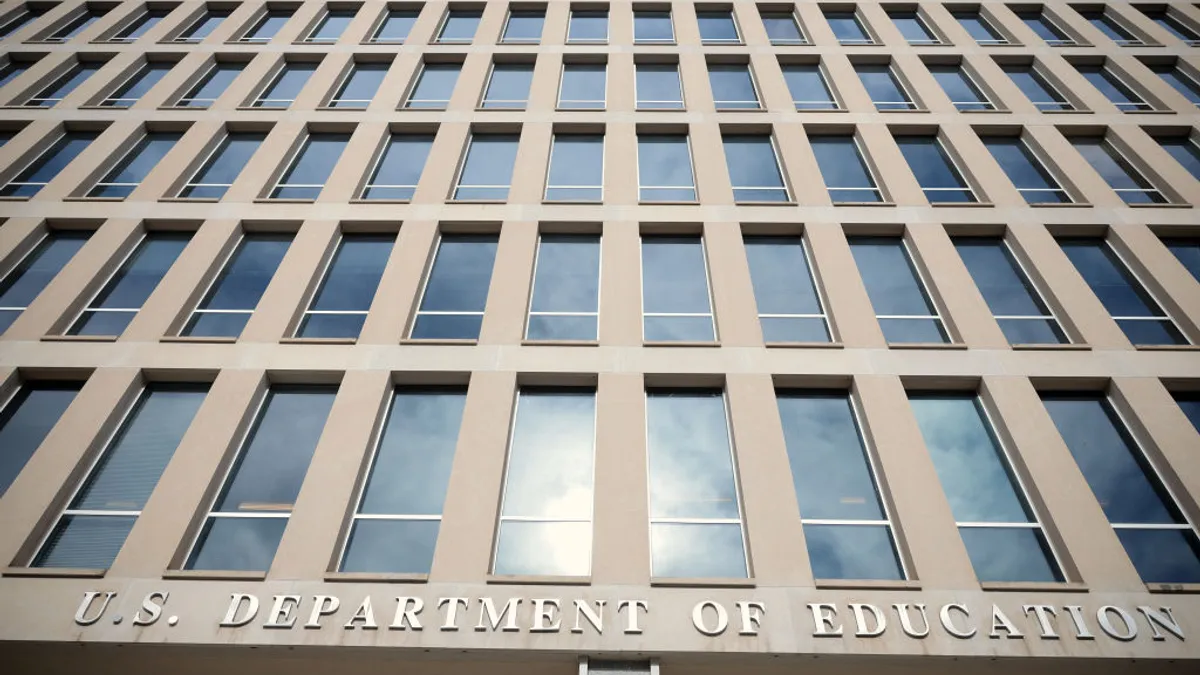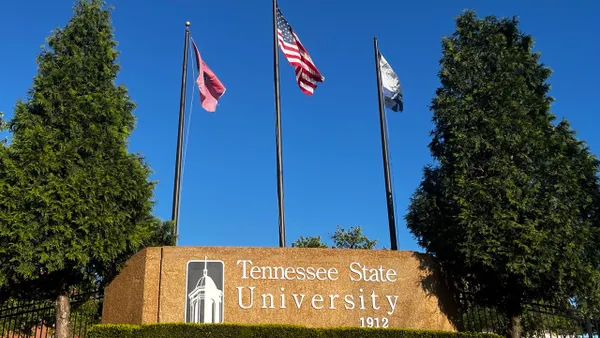Dive Brief:
- The U.S. Department of Education’s plans to more strictly regulate companies that help launch and run online programs could harm colleges that heavily rely on these vendors, Moody’s Investors Service warned Thursday.
- The Education Department announced earlier this year it would expand its definition of third-party servicers, which must meet additional regulatory requirements and share liability for federal student aid. It said it would consider online program managers, or OPMs, that help with recruiting and retention as third-party servicers, though the department has delayed implementation until six months after final guidance is released.
- Moody’s expects the guidance to create heavier administrative burdens and greater expenses for colleges with large OPM contracts. It called out two schools as examples — Arkansas State University and Grand Canyon University, a private Christian institution in Arizona.
Dive Insight:
The OPM market has exploded over the past decade, with hundreds of public colleges contracting with these companies to help grow their online programs. In return for upfront capital, colleges often split their future revenue with these companies through tuition-share agreements.
Under the new guidance, colleges would have to report their tuition-share agreements and relationships with OPMs to the Education Department, according to Moody’s analysts.
“Institutions that have a significant number of online students and rely on OPM partners to deliver online services will likely be most affected by the proposed guidance,” Moody’s analysts said.
Grand Canyon University sends around 60% of its tuition and fee revenue to Grand Canyon Education, an educational services company. The university has more than 80,000 online students and relies on GCE for a wide array of services, including marketing and counseling.
GCE sold the university in 2018 to a nonprofit entity as part of its plan to become an educational services provider to the institution. Grand Canyon University officials also hoped the transaction would lead the Education Department to classify the university as a nonprofit for financial aid purposes, but the agency rejected that bid in 2019.
A 2021 report from The Century Foundation, a left-leaning think tank, meanwhile found that an OPM was responsible for recruiting around 40% of students at Arkansas State University.
Criticisms over tuition-share agreements have been growing, with several federal lawmakers arguing they lead to aggressive recruiting practices. Additionally, a report last year from the U.S. Government Accountability Office found the Education Department wasn’t ensuring that OPM contracts comply with federal laws meant to prevent abusive recruiting.
The Education Department agreed with the watchdog that it needed to take a closer look at these relationships. In March, it announced the new third-party servicer guidance, which initially mandated that colleges report on their arrangements with OPMs by May.
The agency later pushed back the reporting deadline to six months after it publishes the final guidance, which does not have a firm release date. The decision came after higher education groups called for the guidance to be revoked, arguing it would extend beyond OPMs and dramatically increase the number of vendors subject to greater oversight.
In April, the Education Department clarified that it would not consider study abroad programs, course-sharing arrangements or dual-enrollment programs as third-party servicers relationships.
OPMs have firmly opposed the new guidance. The CEO of GCE, for example, has repeatedly defended the company’s business model, arguing it shields universities from financial risk.
And one of the largest companies in the industry, 2U, sued the Education Department in April, contending the agency overstepped its authority in issuing the guidance. The case has been paused until the Education Department issues updated guidance, according to court filings.












